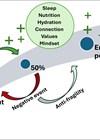Have you ever been plagued by feelings of incompetence despite evidence to the contrary, then this article is for you. Dr Dunay Schmulian provides insight into imposter syndrome and what to do about it.
Excerpt 1
Consultant:
That was excellent, and you performed the catheter insertion carefully and competently. I liked how you talked Mr Sutton through the process without overexplaining.
Registrar:
I am lucky I managed – thank goodness it went in. I am not always that lucky. Great that he was so compliant.
Excerpt 2
Graduate:
I am sorry to bother you and wait here outside your office without an appointment, but I am worried about the oral examination. I am disappointed in myself.
Surgical supervisor:
What are you talking about? I thought the entire afternoon session went well.
Graduate:
But I struggled to palpate the abdominal mass. It took three tries.
Surgical supervisor:
It is more important to see how you work in the moment. You tried different things.
Graduate:
Oh.
Surgical supervisor:
Very similar to real clinical practice, don’t you think?
Graduate:
OK. (pause) When is the re-sit?
With these two excerpts in mind, consider the following definition of imposter syndrome:
Imposter syndrome is defined as an internal experience of phoniness by an individual who outwardly and objectively appears successful to others [1]. Imposters attribute their success to luck instead of personal ability and achievement, even when confronted with objective proof of the contrary. Imposters live in constant fear of exposure. It is predicted that all professionals will experience it at least once in their working life.

Imposter syndrome is particularly noticeable under two overlapping conditions: in the presence of a new challenge and when adjusting to a shifting roles [2[ (e.g. completing a degree or taking on a promotion). The difference between some normally occurring ‘finding your feet’ behaviour and imposter syndrome is that imposters are resistant to positive feedback, and objective proof of mastery and performing well. Instead, their belief is that they have tricked people into believing in them. The more reassurance and objective proof presented to the imposter, the bigger the belief that they have become even better at fooling you!
Some characteristics associated with harmful levels of imposter syndrome are:
- Frequent negative reactions to any forms of objective recognition
- Repeated and instinctual dismissal of compliments
- Consistently minimising achievements by attributing these to luck
- Demonstrating prolonged suffering over every mistake
- Setting increasingly higher standards that lean towards perfectionism
The Young Imposter Scale screens for imposter syndrome by asking eight questions. Participants are considered positive for imposter syndrome if they answered yes to more than five out of the eight questions [3].
- Do you secretly worry that others will find out that you are not as bright and capable as they think you are?
- Do you sometimes shy away from challenges because of nagging self-doubt?
- Do you tend to chalk your accomplishments up to being a ‘fluke’, ‘no big deal’ or the fact that people ‘just like’ you?
- Do you hate making a mistake, being less than fully prepared, or not doing things perfectly?
- Do you tend to feel crushed even by constructive criticism, seeing it as evidence of your ineptness?
- When you do succeed, do you think: ‘Phew, I fooled them this time, but I may not be so lucky next time.’?
- Do you believe that other people (students, colleagues, competitors) are smarter and capable than you?
- Do you live in fear of being found out, discovered, or unmasked?
Have you ever wondered how many people in your profession would achieve a positive score with the Young Imposter Scale? My research team and I explored the prevalence of compassion fatigue and impostor syndrome risk in Australian university students in two allied health disciplines [4]. Anonymous surveys were collected from 72 graduate allied health students (76.4% female, 50% aged under 25 years old). The Professional Quality of Life (ProQOL) scale was used to measure compassion fatigue. The Young Impostor Scale (YIS) was used to screen for the presence of imposter syndrome. Results from the ProQOL and YIS were combined to identify 57% of participants to be at risk of one or both potentially detrimental states.
We concluded that imposter syndrome and compassion fatigue deserve attention both from a student mental health research perspective, but also in how we educate and supervise during clinical placement opportunities.
What to do about imposter syndrome
If you think that you may present with some of the characteristics of imposter syndrome, and that you may be struggling a little more than you should because of its presence, there are some clear avenues of recovery available to you. The first recommendation is to consider accessing professional support through student or employee assistance services. It is helpful talking with a trusted supervisor or colleague.
The second aspect to consider when thinking about the presence of imposter syndrome is to understand that, in many cases, imposter syndrome stems from an over-developed fear-based coping strategy. It is helpful to think of fear as nature’s protector and as the primal mood of the separate self. Indeed, it is evolutionarily present to keep us safe. This is an important point because we cannot get rid of fear. We are able, however, to use techniques and strategies to modulate our fear responses more effectively.
One of the ways in which fear shows up for imposters is as a constant and steady stream of critical self-talk that warns them that they will soon be exposed as fraudulent. An effective and research-driven strategy to right-size the voice of the inner critic is habits and practices based on self-compassion. Self-compassion is simply compassion directed inwards and being touched by our own suffering. It is the practice of becoming an inner ally, and treating oneself with understanding and concern, as you would a friend. Self-compassion has been shown to be extremely useful when confronted with personal inadequacies, mistakes, and failures, as well as during painful life situations that are outside our control. Self-compassionate people are less afraid of and more likely to try again when they do fail. Greater self-compassion is linked to less psychopathology and improved resilience. Individuals who were higher in self-compassion demonstrated less-extreme reactions, less negative emotions, more accepting thoughts, and a greater tendency to put their problems into perspective, while at the same time acknowledging their own responsibility (references available on request).
Although many people fear that being self-compassionate will undermine their motivation, research suggests that self-compassion enhances motivation. Self-compassion has no association with the level of performance standards adopted for the self, but it is negatively related to maladaptive perfectionism [5]. For clinicians, self-compassion is also linked to more empathic concern, altruism, perspective-taking, and forgiveness of others.
How and where do I sign up?
Kirsten Neff created an evidence-based self-compassion practice which consists of three main elements: kindness, a sense of common humanity, and mindfulness. During randomised controlled trials, the benefits of the practice were retained more than one year after completion.
Self-kindness focuses on the tone and choice of language you select with yourself. It is emphasising warmth rather than attacking and berating. Common humanity acknowledges that all humans are imperfect, that all people make mistakes and have serious life challenges; it connects our own flawed condition to the shared human condition.
Mindfulness focuses on becoming aware of one’s painful experiences in a balanced way that neither ignores, nor ruminates on disliked aspects. It helps us not to get carried away.
If, for example, you receive disappointing news in your inbox about a promotion or a placement, your stomach drops, your throat feels tight and the critical self-talk in your head kicks in with refrains of ‘you should have known’, ‘you were found out’. A self-compassion practice would allow some of the following aspects to be introduced into the moment:
- This is really hard for me right now (self-kindness).
- It is so OK to feel this way, anyone would feel disappointed if they were in my shoes (common humanity).
- May I be kind to myself in this moment (mindfulness).
In summary, imposter syndrome may be likened to a glass of frozen water when you are desperately thirsty. A self-compassion practice acts as a warming process that allows the ice to thaw, creating space and eventual change in the state of the medium. Through continued practice, eventually people have the possibility to quench their own thirst.
References
1. Clance PR, Imes SA. The imposter phenomenon in high achieving women: Dynamics and therapeutic intervention. Psychotherapy: Theory, Research & Practice 1978;15(3):241–7.
2. Oriel K, Plane MB, Mundt M. Family medicine residents and the Impostor Phenomenon. Family Medicine 2004;36(4):248–52.
3. Villwock JA, Sobin LB, Koester LA, Harris TM. Impostor syndrome and burnout among American medical students: a pilot study. International journal of medical education 2016;7:364–9.
4. Schmulian DL, Redgen W, Fleming J. Impostor syndrome and compassion fatigue among graduate allied health students: A pilot study. Focus on Health Professional Education: A Multi-disciplinary Journal 2020;21(3):1-14.
5. Neff K. Self-compassion: An alternative conceptualization of a healthy attitude toward oneself. Self and identity 2003;2(2):85-101.









